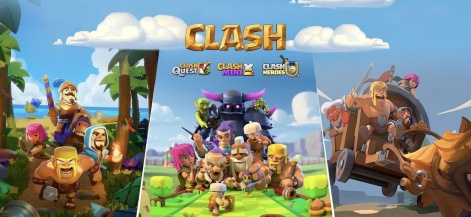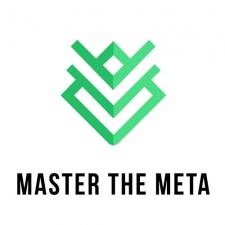Master the Meta is a free newsletter focused on analysing the business strategy of the gaming industry.
MTM and PG.biz have partnered on a weekly column to not only bring you industry-moving news, but also short analyses on each.
To check out this week’s entire meta, visit www.masterthemeta.com.
Supercell’s new game announcements are always a spectacle.
Last week, they announced not one, not two, but (for the first time ever) three new games.
Players were excited about release dates, industry folk were curious about the games and analysts were speculative of why a three-game release makes sense. Three sentences from the video shed light on these questions.
The first explains why: “With these new projects, we’ll expand the Clash universe in ways you’ve never seen before, introducing new genres and new gameplays into the Clash world.”
It’s no secret that Supercell’s revenues have been declining for the past three years ($1.6 billion to $1.56 billion to $1.48 billion).
Juicing revenues through live operations of their top three titles - Clash of Clans, Clash Royale and Brawl Stars - can only go so far.
While Supercell continues to attempt new IP games (Rush Wars), announcing three new Clash IP games signals that Supercell is exploring a portfolio-wide “new games through IP expansion” strategy.
Hay Day Pop was the first hint. While many companies with widely recognisable IPs do this, there is some novelty to Supercell’s approach.

Enter the second sentence: “We felt there is an opportunity to create totally new experiences around the Clash characters and provide new challenges for the players in a fresh way.”
For any IP expansion strategy, finding both genre-IP fit and gameplay-IP fit are critical.
By centering these new games around the midcore-affluent Clash IP, Supercell will likely see a strong genre-IP fit as the company expands into three new midcore genres: Clash Quest (Puzzle RPGs), Clash Mini (Auto-battlers) and Clash Heroes (Action RPGs).
Supercell is doubling down using the depth of Clash’s character roster to drive gameplay-IP fit and in turn a pinch of genre innovation.
Furthermore, Supercell is clearly doubling down on using the depth and uniqueness of Clash’s character roster to drive gameplay-IP fit and in turn a pinch of genre innovation.
For example, the way the troops work in Clash Quest are familiar to what’s seen in Clash of Clans or Clash Royale, but differentiating enough to the Puzzle RPG genre to consider innovative.
Contrast this to how Rovio force-fit Angry Birds into various genres and the smarts behind Supercell’s IP expansion approach starts to shine.
Finally, the question that’s on our minds: will all three games launch globally?
“This is the first time in Supercell history that we’ve ever shared any of our games at this early early stage of development, so things are subject to change”. In other words, it’s too early to say anything.
Clash Quest definitely feels quite early on with Supercell testing the core soul of the game - the most critical piece to get right for any game looking to be played for years.
And there is a long way to go before Clash Quest passes Supercell’s internal project green light benchmark of a 20 per cent D30 retention.
Also, this is the first time that Supercell’s Shanghai team is working on new games, which is great for throughput but might pose internal development challenges of its own.
All in all, it’s really impressive to see such a bold announcement. Supercell needs new games, the IP expansion strategy makes sense on paper and it’s smart to have built up a China development team to run parallel production tracks.
We’re eager to follow the development of all three games and keep our subscribers updated in the coming months.
To check out this week’s entire meta, visit www.masterthemeta.com.
Master the Meta is a newsletter focused on analysing the business strategy of the gaming industry. It is run by Aaron Bush and Abhimanyu Kumar. To receive future editions in your inbox sign up here:





















